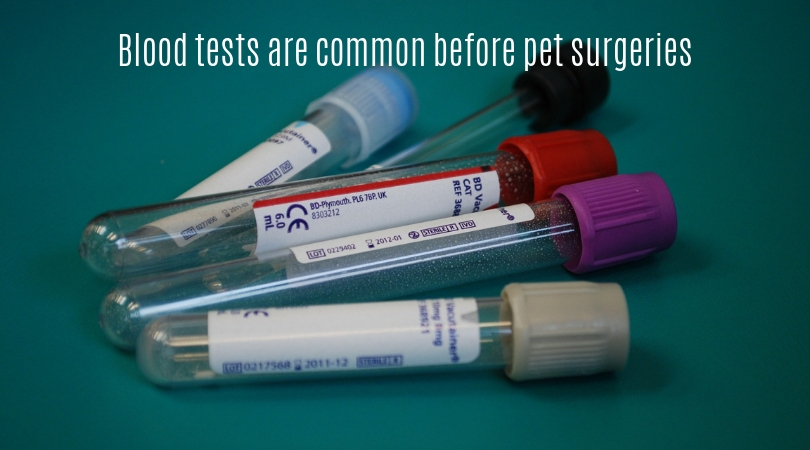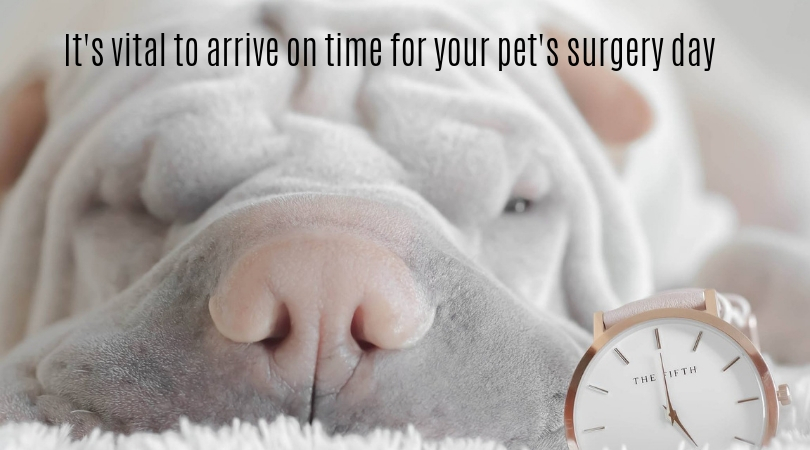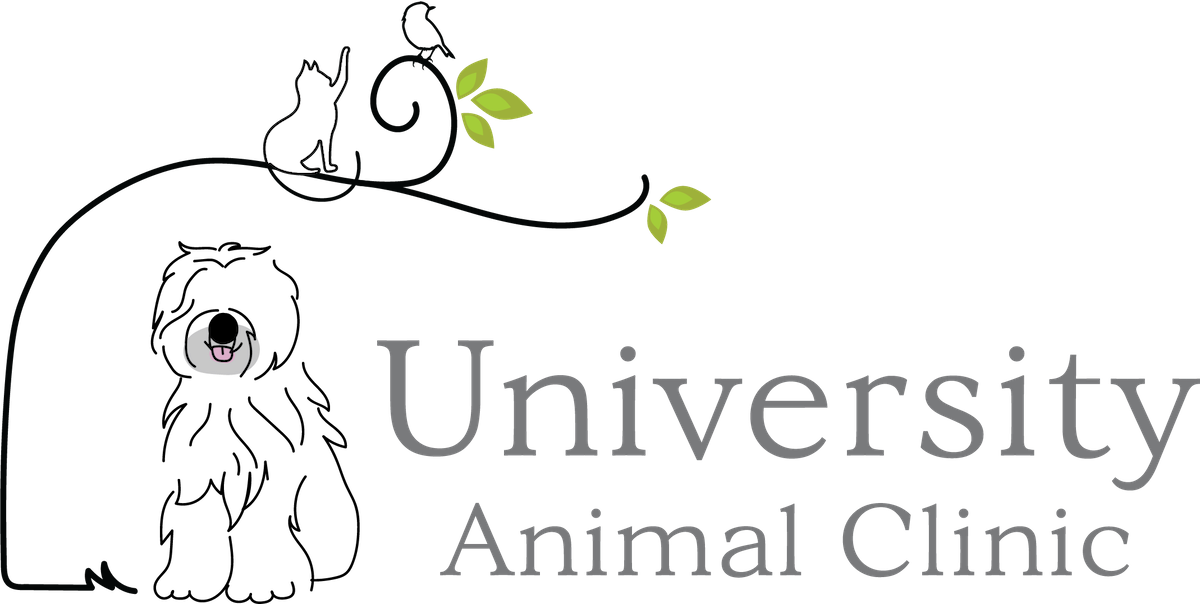So your pet needs surgery? We know it’s stressful to think of your dog or cat undergoing surgery, but know your veterinarian wouldn’t recommend it if they didn’t think it was necessary.
You’re probably familiar with so-called "routine" surgeries like spaying/neutering and some dental procedures (however, it should be noted that each patient and each surgical procedure is unique). Then there are the urgent surgeries related to fractures, lacerations, or obstructions in the body.
No matter the reason for the surgery, your veterinarian will thoroughly evaluate your pet, which may mean screenings like ultrasounds, blood tests, and radiographs to test your pet’s vitals.

Ahead of your dog or cat's scheduled surgery, your veterinarian will give you instructions for prepping your pet for their procedure. Here’s what you can expect:
Expect Some General Instructions
Once your pet’s health is assessed and the surgery date decided, you’ll be given instructions for the night before and morning of surgery. Following these protocols will help the surgery to go smoothly and your pet to recover faster.
Common Protocols for the Night Before and Morning Of Surgery
As each dog or cat is different, ask your veterinarian for any special considerations. Sometimes, you’ll be instructed to suspend any regular medication, restrict your pet’s activity, and fast your pet. Other times, those won’t matter.
Fasting is Common
You may be instructed to remove your pet's access to food and water for 12 hours prior to surgery. This is important because for some pets, having food or water in the system can interfere with the intubation, or breathing tube, used to deliver anesthesia, as well as the recovery period after sedation. Fasting can help avoid potentially life-threatening aspiration pneumonia, which can happen "when gastrointestinal contents have been inhaled into your [dog's or cat's] lungs. This results in a secondary inflammation and infection of the lung. Due to this inflammation, excessive fluid and mucus accumulate within the lower airway, causing difficulty breathing."
There are exceptions. If you have a puppy or kitten undergoing surgery, you might be instructed to stick to their feeding routine due to their age. The same may be true for diabetic pets. If you’re in any doubt, ask your veterinarian.
Be on Time
Drop off your pet at the scheduled time so the procedure can go as planned. Surgical procedures are generally planned in groups based on the allotted time in the day. The staff plans for pre-surgical and pre-anesthetic care, the surgeries themselves, and then individual patient recovery. Your veterinarian wants to take the time needed to provide high-quality care!

Set up the Recovery Area
When you bring your pet home, it’s normal for them to be groggy for a day or two. Make sure they have a quiet, comfortable place to recover. If you have other pets, be prepared to separate them while your pet heals. This is especially true if you have high energy pets. Rest is critical for recovery.
Your veterinarian will let you know what to look out for: what's "normal" or "abnormal" during recovery. They'll help you manage any pain for your dog or cat, and they'll give you notes when to contact the office for further guidance. Consider the signs of complications carefully before you get home with your best bud. You'll feel better preparing for this, just in case.
Ask Questions
While you’ll likely receive both written and spoken instructions for prepping your pet, don’t hesitate to ask questions. Request clarification or reinforcement, and be comfortable with the instructions. Your dog or cat is depending on you, so feel empowered to get the information you need!
Because you are the pet owner, veterinarians look to you as part of the pre- and post-surgery care team. Whether it’s elective or critical surgery, we want you to be informed every step of the way. Do you have questions about preparing your pets for anesthesia and surgery?
